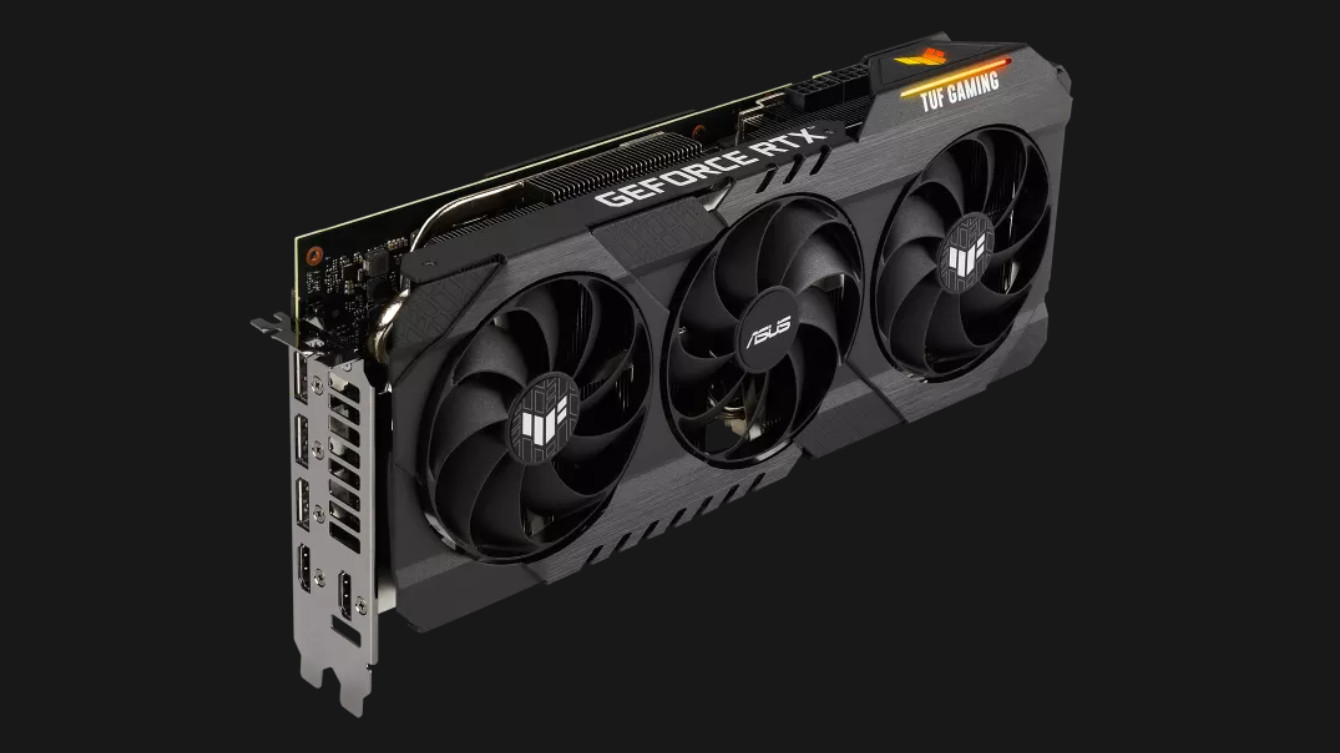Nvidia’s rumored plan for budget GPUs doesn’t involve the RTX 4060
Nvidia looks to be relying on the new faster version of its RTX 3060 Ti graphics card

Sign up for breaking news, reviews, opinion, top tech deals, and more.
You are now subscribed
Your newsletter sign-up was successful
Nvidia is set to phase out the older and slower variant of its RTX 3060 Ti graphics card, and will only sell the newer 3060 Ti with faster video memory, if the rumor mill is right – with potential ramifications therein for Team Green’s mid-range GPU strategy, and the RTX 4060 (we’ll come back to that).
First off, let’s look at the rumor itself, which comes from a regular source of speculation in China, MyDrivers (as flagged by VideoCardz). The source claims that third-party graphics card manufacturers are now in the process of gradually – but assuredly – getting rid of the original, slower version of the 3060 Ti.
If you recall, the faster variant that’s purportedly being kept on is only different in terms of the VRAM – the new 3060 Ti has 19Gbps GDDR6X memory, compared to 14Gbps GDDR6 for the old card. That makes for a major bump in memory bandwidth from 448GB/s to 608GB/s (the loadout of 8GB of VRAM remains the same, by the way, as do all the other specs of these respective graphics cards).
The good news is that buyers will be getting this more performant RTX 3060 Ti with no change in price. At least that’s what MyDrivers asserts will be the case for the Chinese market, and with any luck, that should extend to the global marketplace. We don’t see why it wouldn’t, but that said, you never know quite what might happen on the pricing front.
MyDrivers also mentions Nvidia’s new RTX 3060 8GB variant, which drops the VRAM of the existing RTX 3060 from 12GB (and trims the memory bus from 192-bit to 128-bit), and so is a bit different in terms of being a downgrade. However, it’s unknown whether the older model will be similarly phased out in this case, though we’d hope not (and it’s likely sources would have heard about this, too, if it was the case; or that’s what we’d tentatively presume).
Analysis: Putting an end to confusion – but also sending out a worrying signal?
Obviously we still have to treat this as a rumor, as that’s precisely what it is. But it is a piece of theorizing that makes sense, and we hope that this is the direction Nvidia intends to go in with the RTX 3060 Ti.
After all, it’s always confusing for consumers when a situation comes about that there are identically named models of graphics cards which have somewhat different specs, even if they aren’t poles apart. Reducing it down to just the one variant of 3060 Ti will help clear any confusion, and ensure that less tech-savvy buyers aren’t picking up a slightly inferior model of the 3060 Ti without even realizing that’s the case.
Sign up for breaking news, reviews, opinion, top tech deals, and more.
The price being kept the same as the supposedly outgoing model is also a positive point, though as noted, we have to hope this applies outside China.
However, this isn’t all good news in terms of the signals it sends out from Nvidia – namely that the firm is looking to keep the RTX 3060 Ti as its mid-range workhorse going forward for some time. Or to put it another way, no RTX 4060 is likely to be on the horizon – even remotely – as the plan appears to be to continue pushing RTX 3000 stock on the wallet-friendly front.
And this sadly matches with the freshest rumors we’ve heard elsewhere regarding cheaper Lovelace GPUs, with the belief being that the RTX 4060 is still a long way off, and might not arrive until June 2023. Which is also backed up by how little we’ve heard about the 4060 thus far on the rumor mill, too.
All that said, we might see something for lower-end Lovelace GPUs in the near future, but for laptops, with a recent sighting of the RTX 4050 mobile version (add plenty of seasoning, naturally). But in short, from the way everything looks to be shaping up so far, don’t hold your breath for more affordable RTX 4000 desktop GPUs – Nvidia looks to be relying on the RTX 3000 range to take the strain at that end of the market for some time yet.
Darren is a freelancer writing news and features for TechRadar (and occasionally T3) across a broad range of computing topics including CPUs, GPUs, various other hardware, VPNs, antivirus and more. He has written about tech for the best part of three decades, and writes books in his spare time (his debut novel - 'I Know What You Did Last Supper' - was published by Hachette UK in 2013).